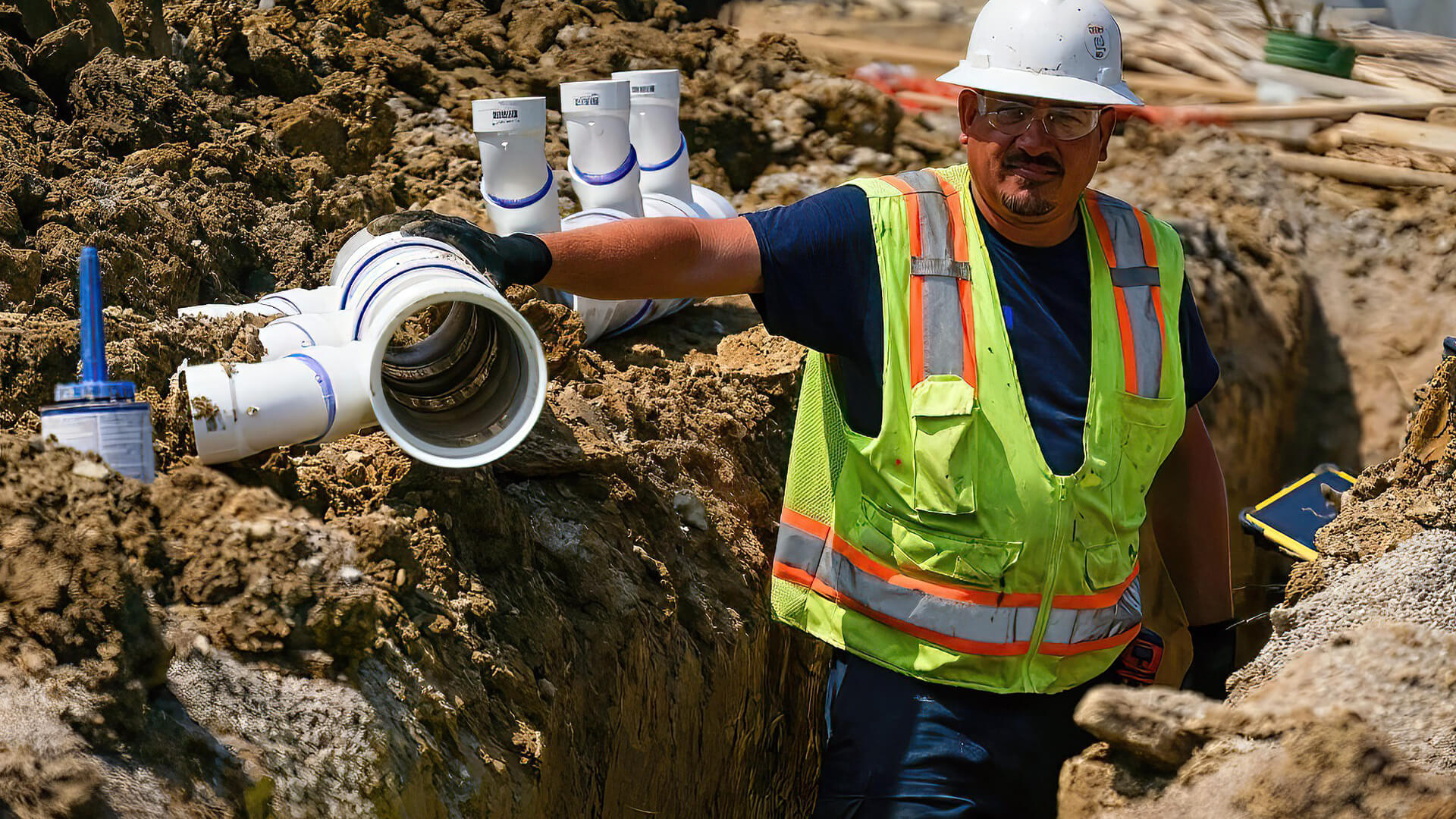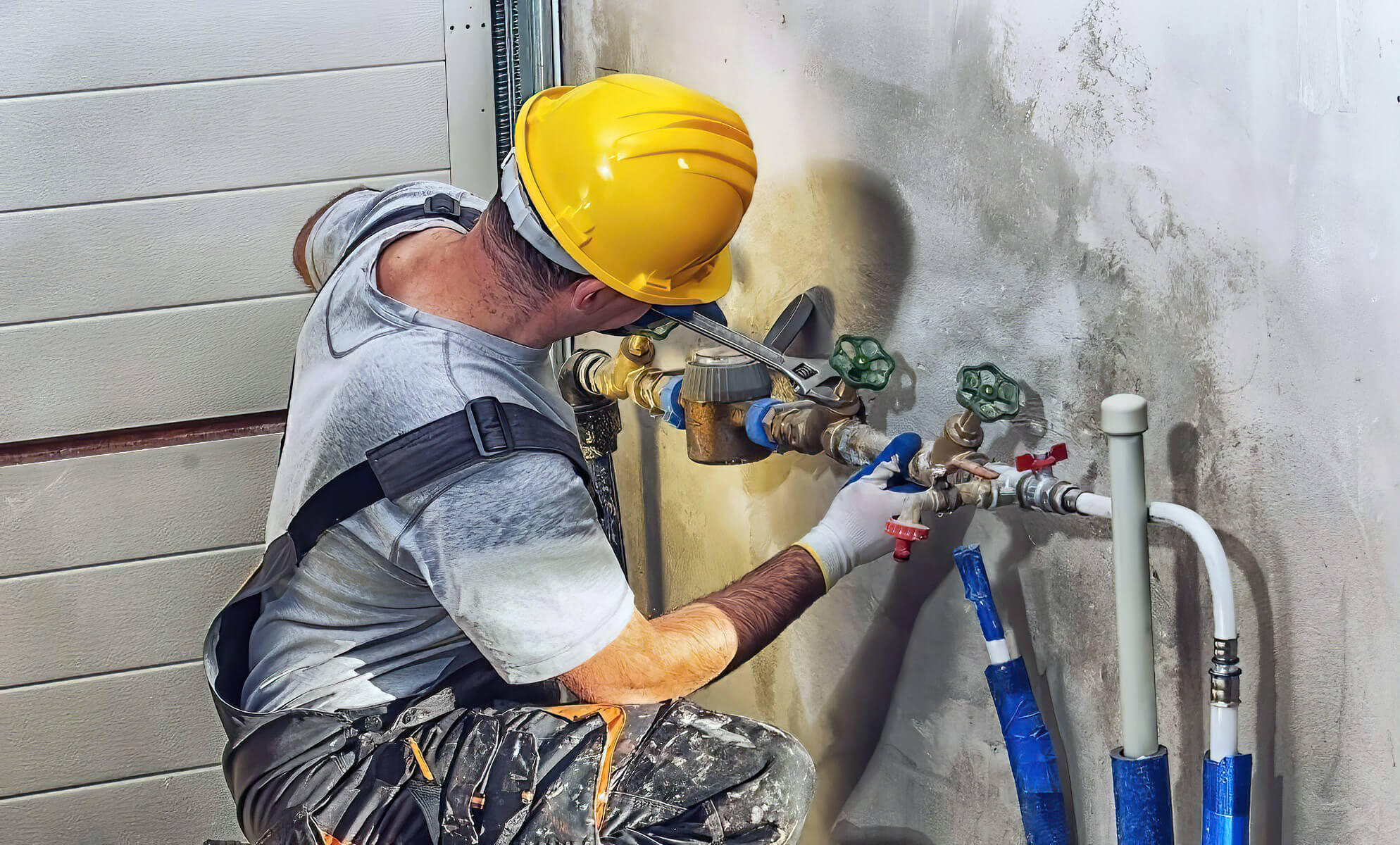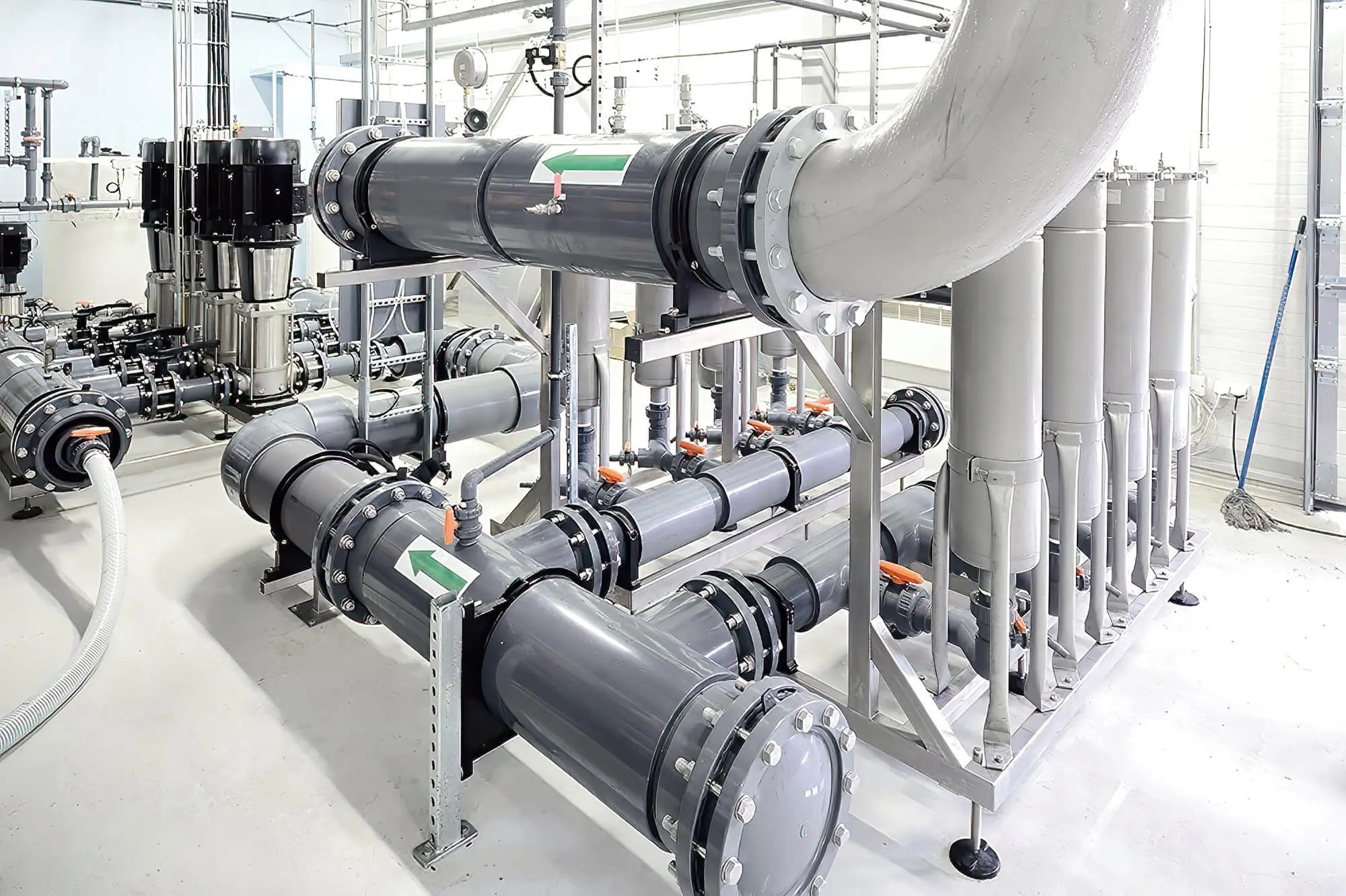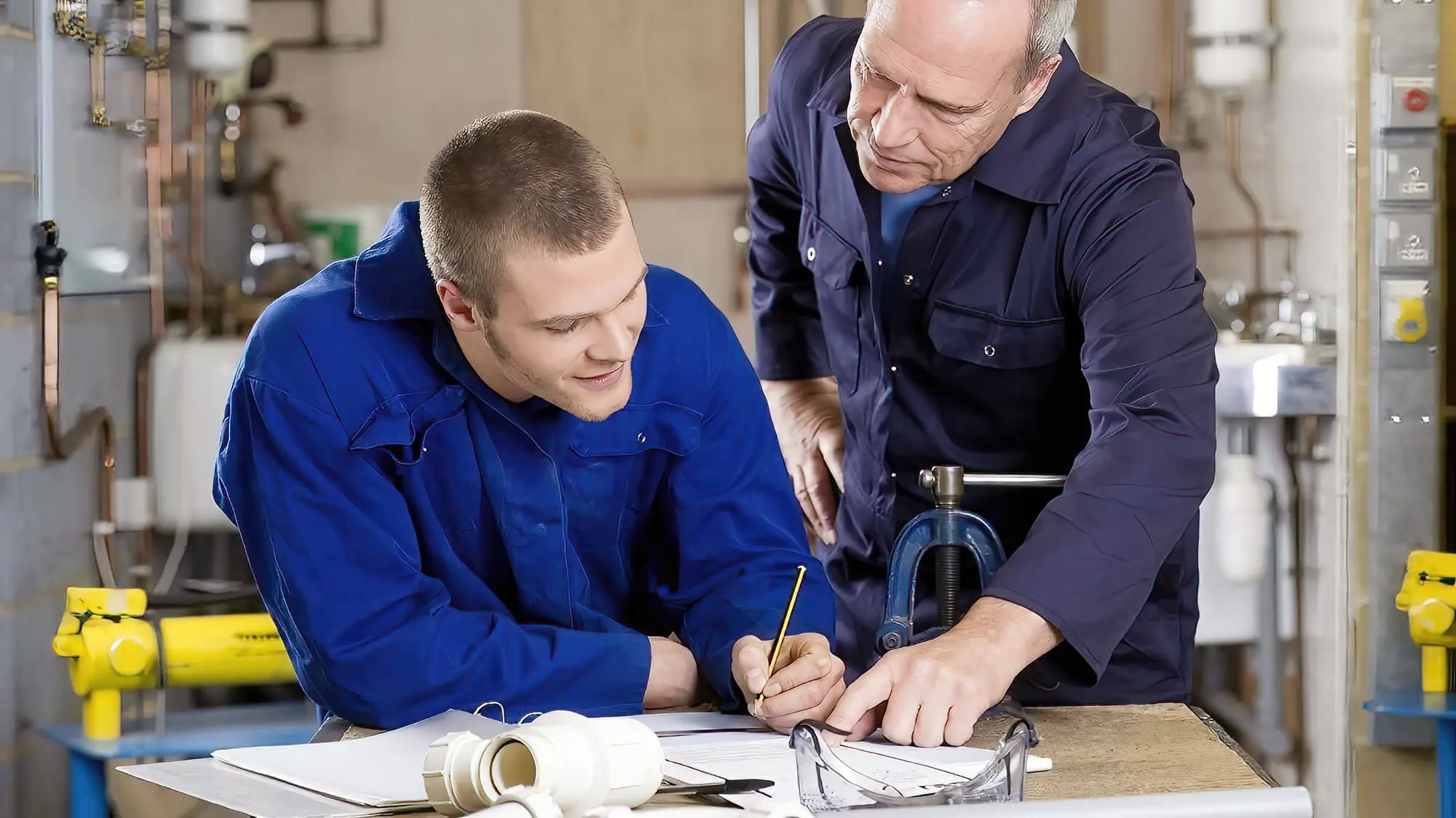Commercial plumbing services cover much more than just basic maintenance, tap fittings, and pipe fixes. You’ll need to look after waste systems, keep the water supply lines running smoothly, and ensure heaters work correctly in commercial areas.
On top of that, maintaining bathroom and kitchen fixtures, sprinkler systems, and undertaking any necessary renovations are part of the job.

With so much on the plate, if you own a commercial building, it is best to consult a particular commercial plumbing company that can handle all the work in the industrial and commercial sectors. This guide will help you understand the different issues you may face and explain why commercial plumbing is essential.
So, keep reading to get a complete guide to commercial plumbing.
Residential Plumbing VS Commercial Plumbing
Plumbing agencies offer both commercial and residential services. While there are some similarities, common issues often include faulty water heaters, installing backflow devices, leaks, and dealing with burst pipes. Leaks in toilets or sinks are also common in both settings.
Let us now discuss both kinds of plumbing in detail.

Residential Plumbing
Residential plumbing work is done on properties like single-family homes, townhouses, small apartments, and condos.
These places usually have straightforward plumbing systems, making it easier to find plumbers for repairs and regular maintenance. Such ease isn’t always the case with commercial properties.
Commercial Plumbing
Commercial plumbing covers services for multi-story buildings, high-rise offices, warehouses, and hospitals. These larger facilities have complex systems, extensive drainage, and larger pipes. Thus, plumbing maintenance and fixes in such places need professionals with specific expertise.
Major Differences Between Residential Plumbing And Commercial Plumbing

When hiring commercial plumbers in Australia, they will know how to do their job and work with complex pipe systems. For example, if there is a broken pipe on the eighth floor of a high-rise office building, many offices in that building may be affected.
Moving on, plumbing is usually supposed to follow stringent codes the healthcare department sets, especially for the food and beverage industries. So, you may need to renovate old furnaces, upgrade amenities, and install new hot water heaters wherever necessary.
1. Size
Size is a significant factor distinguishing a commercial plumbing system from a residential one. Commercial businesses generally have large pipes and a complicated network throughout the property. When a single pipe leaks in residential areas, the system is unaffected; that is not the case with commercial establishments.
The entire pipe system may be affected since the building is connected by one unit. Also, a residential system has fewer piping and outlets; hence, problems occur less frequently, and you can repair them quickly.
Repair work for industrial properties may take hours and even days if there is a lot of damage.
2. Complex System
Commercial buildings will have several offices with bathrooms and many sinks, which are used regularly. Hence, the water pressure must be considered, and the pressure must remain constant throughout the building. High-rise properties are particularly vulnerable to this.
Therefore, a professional commercial plumber must be equipped to deal with such complex systems and intricate pipe arrangements.
3. Plumbing Problems
Common problems in both residential and commercial properties include:
- Leaky fixtures
- Running or overflowing toilets
- Commercial kitchen plumbing
- Leaking faucets
- Burst pipes
- Blocked drains
In commercial settings, these issues are often on a larger scale. Frequent toilet blockages can disrupt the entire building, requiring extensive line fixes.
Ignoring commercial plumbing issues could result in hefty expenses later, possibly involving major pipeline work or relining. Spot an issue early? Report it right away so you can get the necessary professional help.
4. Plumbing Codes
While all plumbers must be licensed professionals before taking on the job, there are usually different plumbing codes for residential and commercial areas.
If the work is undertaken by someone who does not have proper certification or is not licensed, you could spend a lot more money. The result may not be done well, and you may have to hire a professional again.
Licensed plumbers may have to pay heavy fines if they violate the plumbing code while working in a commercial building.
How Can You Join Commercial Plumbing In Australia

With a commercial plumbing certification, you can work for Australia’s top plumbing firms. These companies are nationwide and hire only certified professionals.
Typically, you’ll start as an apprentice and join a training program. After about three to four years of training, you can step into a part-time or full-time role in a commercial plumbing company.
Remember that newer plumbing methods are being developed daily, so you must keep upgrading yourself. To do that, you can join several plumbing classes and gain more expertise.
This will boost your plumbing career, and you can also aim for a higher salary. The more qualifications and experience you have, your job prospects will be better.
Commercial Plumbing: Your Detailed Overview
Commercial plumbers’ scope of work is much greater than that of residential plumbers. Hence, residential plumbing professionals may not be able to handle commercial businesses well. So, book a company specialising in fixing commercial building plumbing issues.
Before booking, ask for proper certification so you know their qualifications. Read through the reviews left by previous customers on their website to learn about their quality of service.
Also, ask them for a timeline for how long the work may take, considering it is commercial property.
To keep your building running smoothly, toilets and sinks need to work reliably. If you’ve got a reputable plumbing company handling this, you’re pretty much covered.
Fixed Today offers experienced and qualified commercial plumbers throughout Sydney, providing services at reasonable prices. Interested in learning more about preventative maintenance in commercial plumbing? Give us a call!
We hope you have a great experience!














